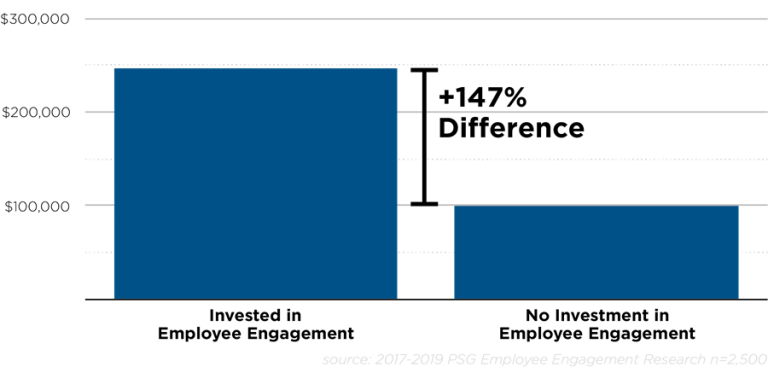After attending NACE last month, it became very apparent to us that while there is definitely a thirst for marketing advice, there is also a lot of mixed messages being presented. One area of particular concern is the current focus on increasing online reviews. Since much of the material discussed was somewhat contradictory, we thought this would be an excellent opportunity for us to offer PSG insights on how to manage your shop’s online reputation most effectively.
What You Should Know And How To Fix It
First, online reviews are very important to some customers, no question. Heck, even our research validates this to a degree (look at your Marketing Dashboard), and so does pretty much every collision marketing article written this year. In extreme cases, some even think that it’s the silver bullet to increasing sales. Not to temper the excitement, but it’s important to note, that while our data does identify an increase in customers finding online reviews important, many more indicate they were not at all important to their decision.
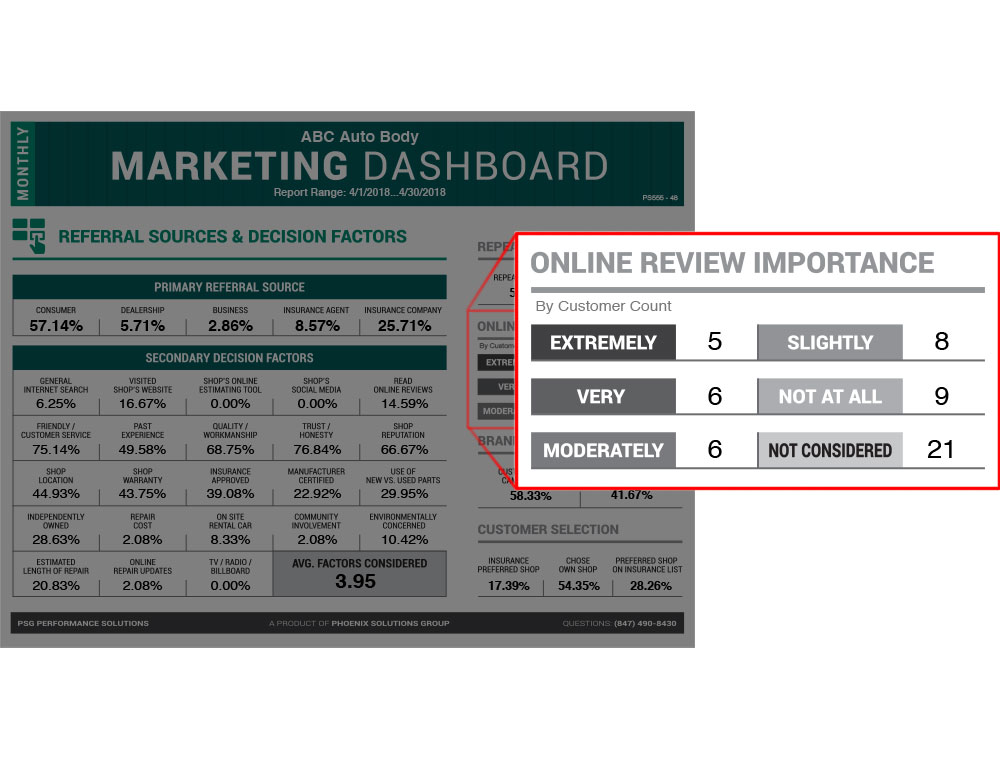
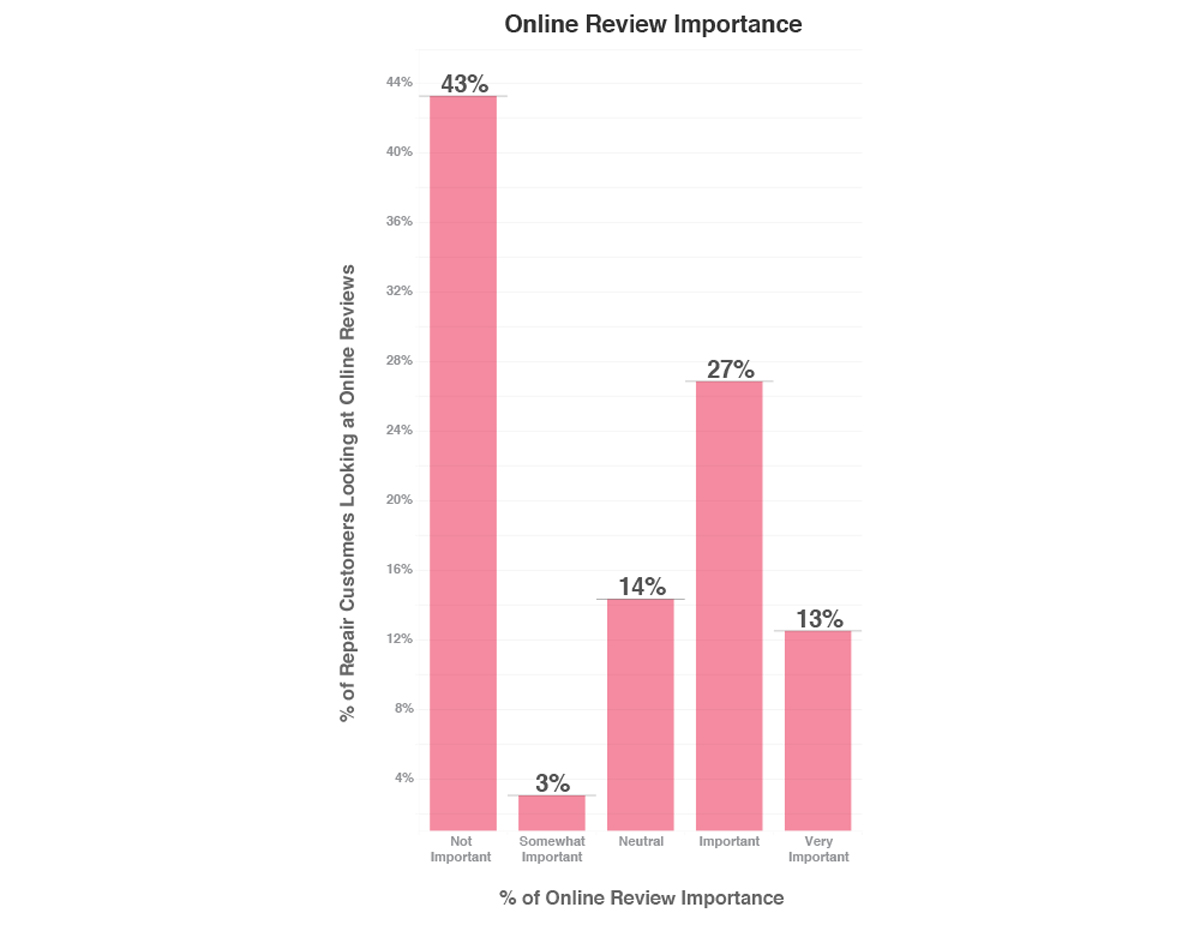
Regardless of your views, it is important to know that the quantity of reviews isn’t as important as it once was… Yes, we are aware that Google has stated in the past that “review count and scores are factors in local search ranking”. The reason for this shift is because of what hasn’t been mentioned, which is Google’s change to their online review guidelines. They now prohibit “bulk solicitations of reviews”, among other items. While Google’s definition of what is considered bulk is purposefully vague, according to many experts, “you could consider bulk review solicitation as sending review requests via email or SMS, either automatically after a sale or to contact lists, and soliciting a review to a third-party review website, such as Google, Yelp, etc.” (Bulk Solicitation Definition)
While there are a lot of unknowns about what Google is trying to ultimately accomplish with this change, one thing they have revealed is some insight into how it ranks “local pack” search, which is the small pack of listings that pops up right above the organic results – you know, the one spot everyone wants to be apart of. The factors that now matter the most are a combination of distance(proximity to the searcher’s location), relevance (how well can you address the searcher’s needs), and prominence. Prominence is based on the information Google has about your business from across the web, including business listings and review data. It’s important to note, however, that reviews just got more complicated. According to Google’s updated local reviews schema guidelines, only first-party reviews can count toward local search ranking.
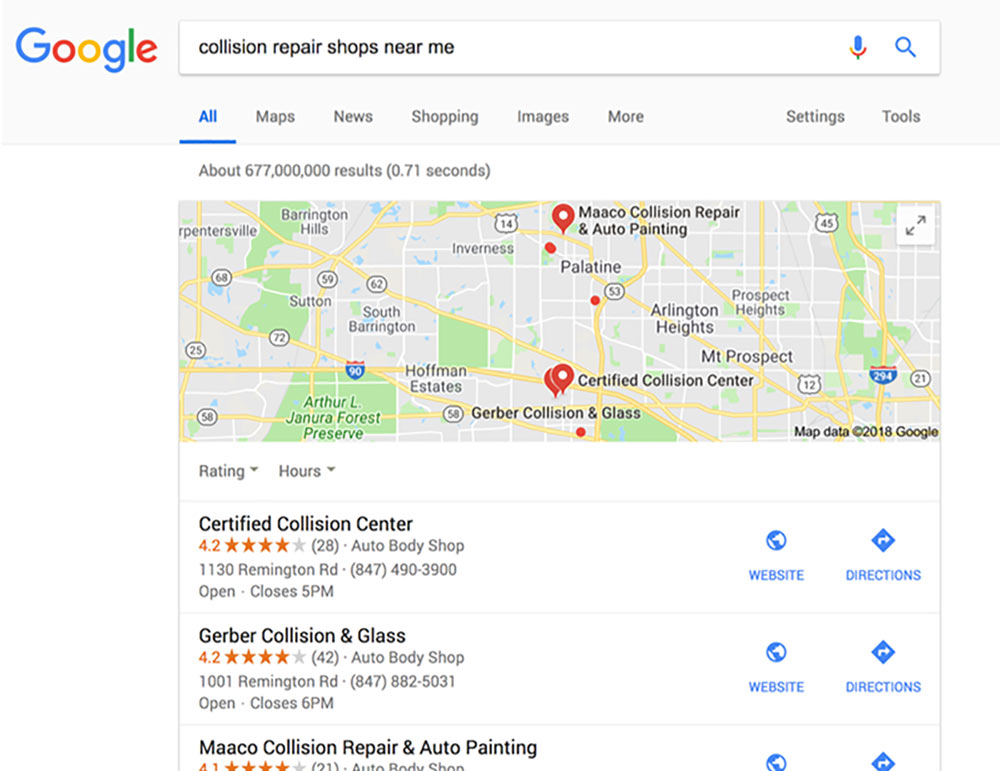
How PSG Will Start Addressing This Change
We began watching and researching this trend earlier this year, after Google announced this change, and have been testing a solution for the past six months to help shops increase their search relevance (SEO), but also generate more first party reviews.
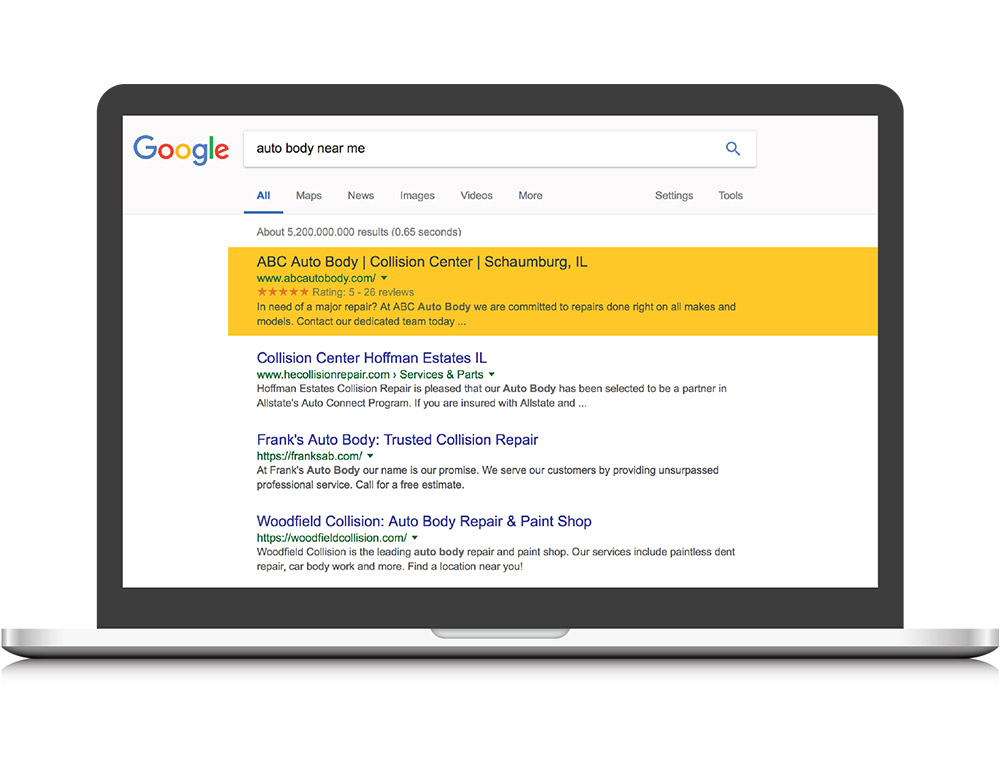
We chose to focus on first party reviews (e.g. reviews written on a shop’s site) because those type of reviews are becoming increasingly more important for local ranking results, and therefore critical to your business. In our quest, we found a way to not only simplifying the entire review generation process, but also that by embedding reviews on your shop’s site, those reviews will show up in all search results. Our unique approach gave our test shops, on average, an increase in site traffic by 154%, which increased online estimate requests by 80%. We are so excited about this new solution, not only because it falls well within the new guidelines Yelp and Google have published, it is also ahead of the SEO curve, which will provide our shops with the most effective and responsive digital marketing strategy the market has to offer.

